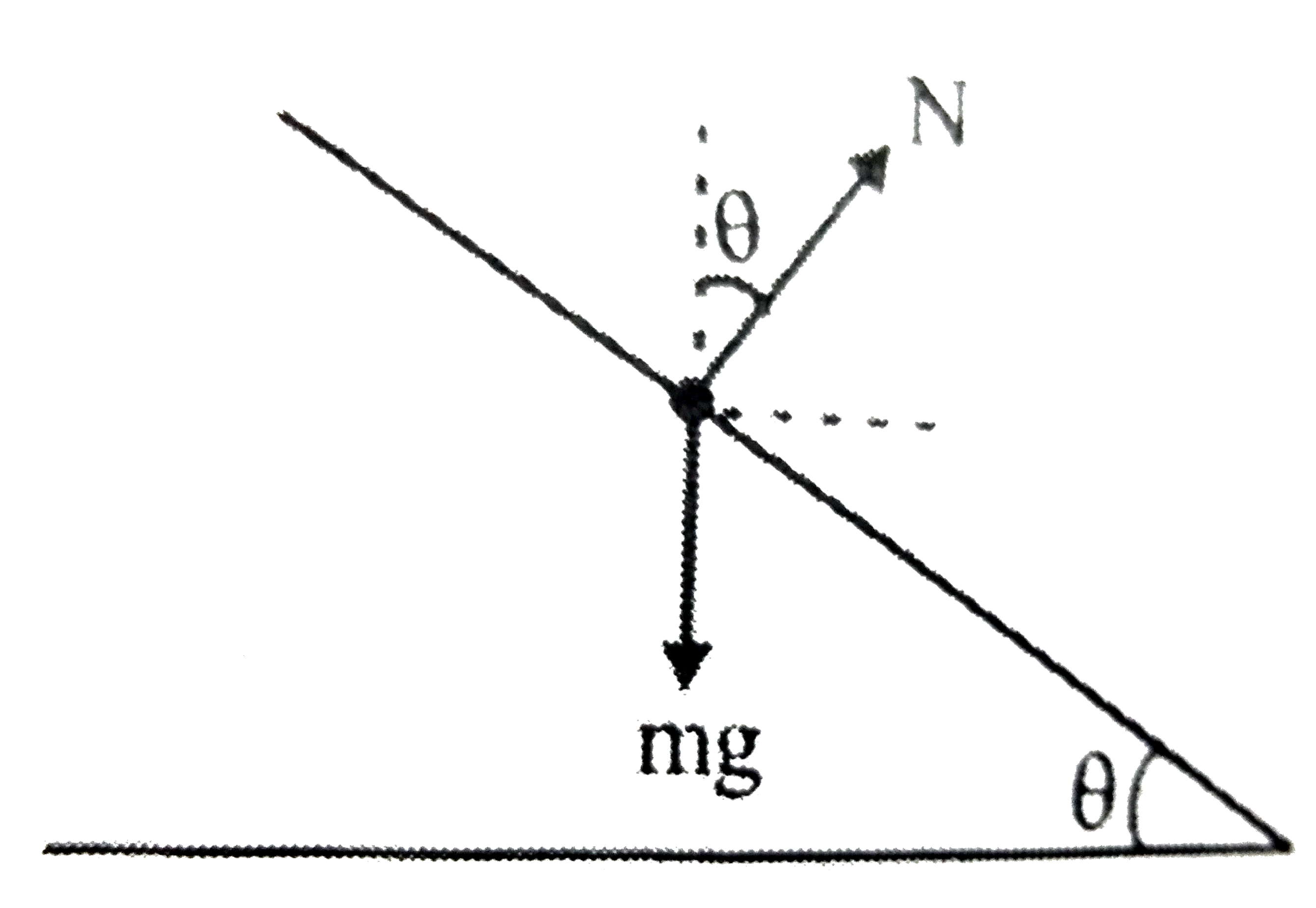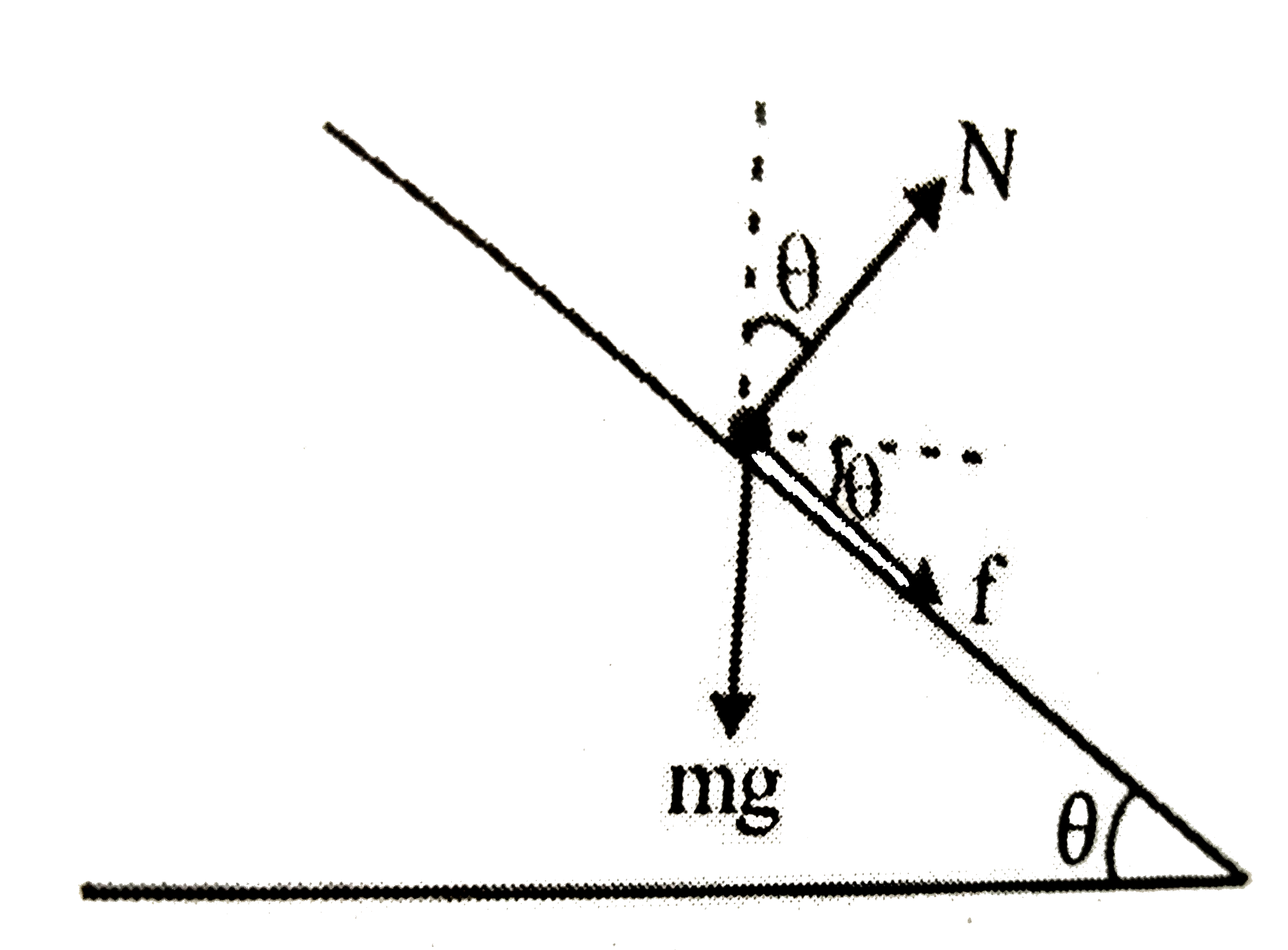A car is moving along a banked road laid out as a circle of radius r . (a) What should be the banking angle θ so that the car travelling at speed v needs no frictional force from tyres to negotiate the turn ? (b) The coefficient of friction between tyres and road are μs=0.9 and μk=0.8 . At what maximum speed can a car enter the curve without sliding toward the top edge of the banked turn ?

Nsinθ=mv2randNcosθ=mg⇒tanθ=v2rg
NOTE: In above case friction does not play any role in negotiating the turn.
(b) If the driver moves faster than the speed mentioned above, a friction force myst act parallel to the road, inward towards center of the turn.
⇒Fcosθ+Nsinθ=mv2randNcosθ=mg+fsinθ
For maximum speed of f=μN
N(μcosθ+sinθ)=mv2randN(cosθ−μsinθ)=mg
=v2rg=sinθ+μcosθcosθ−μsinθ⇒v=√(sinθ+μcosθcosθ−μsinthea)rg


Topper's Solved these Questions
- BOOK - ALLENCHAPTER - CIRCULAR MOTIONEXERCISE - EXERCISE (S-1)8videos
CIRCULAR MOTION
- BOOK - ALLENCHAPTER - CIRCULAR MOTIONEXERCISE - Dynamics of circular motion6videos
CIRCULAR MOTION
- BOOK - ALLENCHAPTER - BASIC MATHSEXERCISE - Question1videos
BASIC MATHS
- BOOK - ALLENCHAPTER - CURRENT ELECTRICITYEXERCISE - EX.II66videos
CURRENT ELECTRICITY
Similar Questions
A car has to move on a level turn of radius 45 m. If the coefficient of static friction between the tyre and the road is μs=2.0, find the maximum speed the car can take without skidding.
View SolutionIf the coefficient of friction between the tyres of a car and the road is μk, show that the maximum stopping distance of the car when moving with a velocity v is v2/2μkg
View Solution
Knowledge Check
- Question 1 - Select One
The coefficient of friction between the tyres and the road is 0.1. The maximum speed with which a cyclist can take a circular turn of radius 3 m without skidding is (Take g=10ms−2)
A√15ms−1B√3ms−1C√30ms−1D√10ms−1
A car is taking turn on a circular path of radius R. If the coefficient of friction between the tyres and road is μ, the maximum velocity for no slipping is
View SolutionWhat will be the maximum speed of a car on a road turn of radius 30 m, if the coefficient of friction between the tyres and the road is 0.4? (Take g=9.8m/s2)
View SolutionWhat will be maximum speed of a car on a curved road of radius 30 m , If the coefficient of friction between the tyres and the road is 0.4?
(g=9.8m/s2)View SolutionWhat is the minimum stopping distance for a vehicle of mass m moving with speed v along a level road. If the coefficient of friction between the tyres and the road is μ.
View SolutionFind the maximum speed at which a car can take turn round a curve of 30 cm radius on a level road if the coefficient of friction between the tyres and the road is 0.4. Take g=10ms−2.
View SolutionA car is taking a turn of radius 400 m on a horizontal circle . Coefficient of friction between the ground and tyres of car is 0.2 . Find the maximum speed with a safe turn can be taken
View SolutionA car of mass 1000kg negotiates a banked curve of radius 90m on a frictionless road. If the banking angle is 45∘ the speed of the car is:
View Solution
